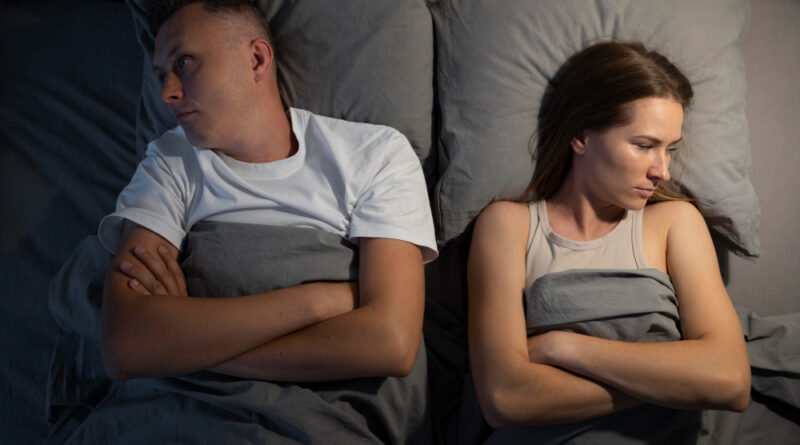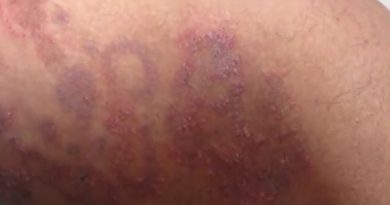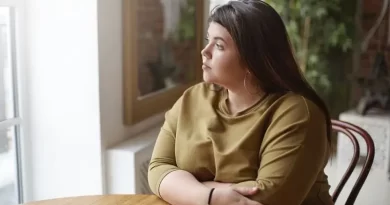What Does It Mean to Be Hyposexual?
Hypoactive sexual desire disorder, or HSDD, is a clinical condition that can also be called “being hyposexual”. The diagnosis is solely for women. Men have a separate ailment called male hypoactive sexual desire disorder or MHSDD, which is exactly the same.
There is no precise diagnosis for those who don’t fit into either of the two gender categories. A person can be diagnosed with HSDD if they haven’t felt sexual in at least six months and are upset about it.
You will be interested on: What is Sexual Disorder & Ayurvedic Treatment for Sexual Problems
Hyposexuality
The antithesis of hypersexuality is being less sexual. In the same way that a person with hyposexuality doesn’t think about sex, someone with hypersexuality may think about it all the time.
A lot of people think that being hyposexual is a sexual identity, but it’s not. Instead, it is a biological condition where a person resents not wanting to engage in sexual activity. People have paid a lot of attention to the clinical aspects of HSDD and to cisgender women who have it, but it can disrupt the life of anyone.
We’ll talk more about what it’s like to live with HSDD in the next section. You’ll learn everything about what it means to be hyposexual, from what causes it to how it differs from sexuality.
Keep reading: Is Absent Sexual Desire a Sign of Serious Disorder in Women?
Using the term HSDD
In this article, we use HSDD to mean both MHSDD and HSDD. Because HSDD can affect both men and women, and because the causes and symptoms of MHSDD are similar to those of HSDD, we’ve decided to use the same word for both disorders.
Understanding the Causes of Hyposexuality
There are several things that might trigger HSDD, and some of them are easier to deal with than others. These are some of the causes that are known.
Hormone Therapy
As part of gender-affirming care, hormones may be used to help the person change. Trans women are given hormones that make them look more like women, including oestrogen, which can induce HSDD.
Trans women have a high rate of HSDD, and more than 62% of women have less sexual desire after receiving gender-affirming care. 22% were found to have HSDD. Because testosterone is used in affirming treatment for trans men, which stimulates sex drive, the number of trans men who have HSDD is far lower than the number of trans women who do.
You will be interested on: Causes for Loss of Sexual Drive & Desire in Women
Stress, anxiety, and life problems
Studies have indicated that stress, anxiety, and sexual dysfunction have a “significant” link. 4 It’s commonly known that stress can make your libido go down. Managing your stress, on the other hand, can make it easier for your libido to stay in your life.
But sometimes life throws us curveballs that are bigger than what we can handle through meditation. When something happens that you can’t change or get over soon, HSDD, or feeling like you’re not sexually attracted to people, can happen more often.
Keep reading: Types of Sexual Dysfunction in Men & Women
Medication
HSDD can be caused by some antidepressants, especially those in the group known as SSRIs. There are ways to lessen the effects of antidepressants on sexual function, such as lowering the dose or trying a different drug. HSDD can also be induced by other types of drugs, including the ones below:
- anti-epiletics
- anti-hypertensives
- anti-psychotics
- anti-androgens
Low sex hormone levels
As we age, our libidos tend to diminish. This makes sense from a biological point of view, since we are less likely to have children as adults. Hormones like testosterone, which make us want to have sex, naturally go down as we get older.
Other sex hormones, such as oestrogen and progesterone also diminish in women who are going through menopause. This can also happen to some people when they are younger.
You will be interested on: Does Stress Can Cause a Low Sexual Drive
Body image issues and dysphoria
If you don’t like your physique, it makes sense that you wouldn’t want to be close to someone. HSDD can happen if you have difficulties with how you feel in your body, whether it’s because you don’t think you’re pretty or because you have dysphoria and don’t feel like your body matches your gender.
HSDD can sometimes be helped by gender-affirming surgery for trans people who are feeling dysphoric.
Keep reading: Sexologist in Birmingham
Sexual abuse and trauma
After a sexual assault, those who have rape trauma syndrome Some people may find it short, but for others, it can last for years. Your body might react in a traumatic way even if you haven’t been raped in the usual sense of the word.
RTS can cause a person to avoid physical contact with others, and even non-sexual physical proximity can be a trigger for them. This syndrome may need counselling to get better, and therapy is a very good way to help someone get over a sexual assault and move on to a healthy sexual life.
Now that we know what causes HSDD, let’s see how it’s different from having a sexual identity.
You will be interested on: Sexologist in Redbridge
Hyposexual vs. asexual
Being asexual is a form of sexual identity. A person who is asexual has very little or no sexual desire for or attraction to other individuals. People who are asexual frequently find out at an early age, and it might stay the same for the rest of their lives. People who are asexual can have extremely happy lives and be fine with not having sexual desires.
On the other hand, HSDD is a clinical diagnosis that can be treated. It’s not an identity, and someone who is hyposexual could be highly dissatisfied with their lack of sexual desire and attraction to other people. A person who is asexual is fine with not being sexual, while a person who is hyposexual may miss the act of sex and may still be attracted to others even if they don’t want to be intimate.
Keep reading: Sexologist in Newham
Hyposexual vs. Graysexual
Graysexuality is also a way to define your sexuality. It’s different from asexuality since people who are asexual rarely or never feel sexual desire for other people. People who are graysexual, on the other hand, feel sexual desire sometimes.
A graysexual person has less sexual desire than an asexual person, but they don’t call themselves asexual because they do sometimes have sexual desire. A graysexual person can be content with how much and how often they want to be with other people and have a full life.
HSDD is different from graysexuality in the same way that asexuality is different from HSDD. People with graysexuality have HSDD for a shorter time, not as an identity, and it may become better with treatment.
Both asexuality and graysexuality are ways of identifying what a person has, no matter what is going on around them. HSDD, on the other hand, is mostly caused by outside factors and can be treated in different ways. Find out what they are by reading on.
You will be interested on: Sexologist in Sheffield
How HSDD Can Be Treated
Some people with HSDD can get well on their own. If you’ve been really stressed because of problems in your life, and then those problems go away, you may find that your sexual desire comes back on its own. If you have dysphoria and get care that supports your gender identity, you might find that you want to have sex again.
In other scenarios, HSDD does not go away on its own. When someone is diagnosed with HSDD, a combination of medicine and treatment can be helpful. Testosterone is used a lot because it increases sexual drive and libido. HSDD may also get better with exercise, talking to others, and putting on oestrogen patches.
Keep reading: Ayurvedic Treatment for Low Sex Drive in Men and Women
A Word From Khokar Dispensary
If you have HSDD, there are ways to get help. For a doctor to say you have it, you have to experience less sexual desire for at least six months in a row that is affecting your life. Talk to a doctor or therapist about the best treatment for you, and know that you’re likely to feel like yourself again soon.
Related Links :
- Ayurveda Infertility Treatment Clinic in Nagaur
- Ayurveda Infertility Treatment Clinic in Nizamabad
- Ayurveda Infertility Treatment Clinic in Khasab
- Ayurveda Infertility Treatment Clinic in Bagalkot
- Ayurveda Infertility Treatment Clinic in Bhadravati
- Ayurveda Infertility Treatment Clinic in Kota
- Ayurveda Infertility Treatment Clinic in Mulur
- Ayurveda Infertility Treatment Clinic in Hongalli
- Ayurveda Infertility Treatment Clinic in Bhongir
- Ayurveda Infertility Treatment Clinic in Sankeshwar
Originally posted 2023-05-29 06:54:55.





